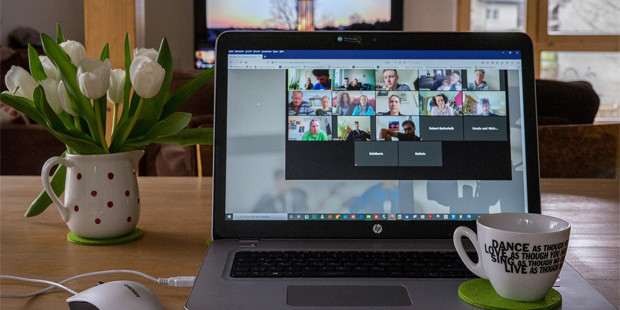10 Reminders When Applying for a Remote Job

Millions of people around the world work in remote jobs with a good percentage of these workers no longer having any plans to return to a physical work setup. This is because remote working (particularly working from home) brings numerous benefits, some of which include accessibility to family and lesser transportation costs. If you’ve decided to become a digital nomad in the foreseeable future whether it be full-time or freelance, check out these 10 reminders to help you with your remote job hunting:
1. Check your equipment
The most important reminder when applying for a remote job is to make sure you have all the right equipment you’ll need for your work. Unfortunately, working remotely can be quite expensive since you’ll be spending on your own equipment unless the company will be sponsoring them free of charge. Among the most common equipment needed for any type of remote job include a computer, headset, and a camera. Other specialized tools will be needed depending on your work (for example digital drawing tablets for graphic designers and dynamic web microphones for customer service representatives).

Equipment is also not limited to hardware but software as well so you will be needing multiple collaboration and specialized software for your work. Although the company will be providing the software make sure your computer can handle all the work-related apps you will need to complete your daily tasks. Before you’ve decided to work remotely, create a checklist of your equipment and purchase those you haven’t. If your computer is experiencing some issues, get it fixed at a trusted repair shop.
2. Check your Internet connection
How to get a remote job faster? Have steady Internet. In an interconnected world, you will need to have a reliable Internet connection not just to allow easy communication with colleagues but also to help you finish multiple tasks effectively and efficiently. You may have top-of-the-line equipment but if you have a poor connection you will be bouncing from one work to another. There is no need to invest in additional connectivity tools such as routers, extenders, and ethernet cables and adapters, but keep a contingency fund ready if you think connectivity will be compromised during work hours.
Alternately, you can also check your connectivity settings to make sure you have uninterrupted internet throughout your entire work shift. Numerous tutorials can be found online and dedicated online communities are always willing to offer a helping hand if you have any concerns. Changing the Internet plan should you be the last option and only contact your telecommunications provider if all other options fail.
3. Consider your home workspace
You may feel that full-time remote work is the best option for your career moving forward but you will also have to make sure that you have a conducing home workspace where you will be working 8 to 10 hours a day, 5 to 6 days a week. Do you have a separate room where you can turn it into a makeshift office? Do you have a desk and a chair? Can you ensure a quiet work environment throughout your entire shift? If your answer to these questions is a resounding “yes”, then you can apply for a remote job as soon as possible.

But even if you answer no to some of the questions, particularly the one where you don’t have a separate room you can still proceed with your remote job application. You can always use any area inside your home as an office particularly in the living room or dining room. As long as you won’t be disturbed by family members roaming the area during your work then you can still be very productive. Additionally, if you don’t have a proper desk or chair then you can purchase them at the nearest department store. There is no need to purchase the expensive ones as you only need a simple desk that supports your computer and a sturdy chair where you can properly rest your back. You may even get lucky and purchase the ones with big discounts.
4. Make sure you are free from distractions
Avoiding getting distracted by family or visitors is only half of the problem when you’re working from home. You also need to make sure you are mentally prepared since you will be faced with potential distractions on a daily basis. Whether it be your phone, tablet, or gaming device, be ready to temporarily hide them throughout your shift. Nothing can distract you more than a device that is always notifying you of a text, chat, or other unimportant updates.
Aside from that, you may also be compelled to do other errands such as cleaning the entire house or taking a quick walk to do some groceries. Your work schedule should only be for work-related tasks and work-related tasks alone. All of your errands and other activities can wait once you finished all of the tasks for the day. Remember that being constantly distracted is a habit you can’t easily break and this will only cause problems for your remote job in the long run.
5. Apply for jobs that match your skills
Although it’s true to applying for remote jobs is easier especially when it comes to the convenience of applying for dozens of jobs from the comfort of your own home, it doesn’t mean you can apply for any available job. Having skills that match with the specific job vacancy also applies to online jobs whether it be full-time or part-time work. Yes, there are thousands of jobs available online but you also have to be careful what you apply for. The more jobs you apply to which don’t match your skills, the faster you will be blacklisted on online recruitment websites.

If you are determined to apply for jobs that you don’t have experience in (for example working in software development jobs for tech companies), you can undergo training first. Online learning platforms such as LinkedIn Learning and Coursera offer training courses for a variety of subjects. If you have extra funds, go for paid training courses which come with a certificate after you’ve finished the said courses. These certificates tremendously help connect employers with job seekers with limited experience.
6. Prepare for interviews
Preparing for remote job interviews isn’t any different from preparing for interviews in physical offices. In fact, you will have to double your preparations as you may be faced with numerous challenges before and during your interview. Your internet connection is essential for you to have a proper interview as bad internet doesn’t only affect communication between you and the employer but also decreases your chances of getting hired. Much like the previous reminder, make sure your Internet connection isn’t encountering any problems before you proceed with any important activity, in this case, a job interview.
Remember to dress appropriately for your job interview even if you’re only applying for a freelance job. This gives an impression to the employer that you are serious about the opening and you are determined to beat other applicants who are applying for the same position. A full suit isn’t necessary as the employer will only be seeing your face. Instead, go for a collared shirt or blazer and make sure to have proper lighting before the interview begins. Additionally, do research on common interview questions and get familiarized with complex/situational questions.
7. Prepare to deal with different personalities
Employees working in remote companies tend to overcommunicate which is understandable considering remote workers are situated miles from each other. There may even be employees working in another country. If you managed to land that remote job, you will be dealing with multiple personalities who won’t be just interacting with you on work-related tasks but also with personal stuff. If you’re not the chatty type or the type who likes to talk about anything to colleagues, make sure to set boundaries from the very beginning so that your work won’t be affected.

Although remote work companies operate differently from companies with physical offices, employee interaction doesn’t change even if workers don’t see each other personally. Your company may set hour-long meetings every day or may even require you to turn on your webcam for the duration of the shift. Talking to colleagues for 8 to 9 hours a day is certainly not a requirement but you should be proactive in communicating with them especially when accomplishing tasks that require collaboration. Building rapport with everyone in the team or company is important for operations to go smoothly but you can always limit your interactions if you simply want to focus on your work.
8. Always stay aligned with company goals
There is very little difference when it comes to company goals in both remote work companies and companies operating mainly in physical locations. Workers need to be aligned with company goals so that the company doesn’t only generate revenue but also earn income. That is the reason why tasks and positions are assigned to each member of the organization so that there is a seamless and efficient process to meet both short-term and long-term goals. Remember that goals aren’t just applicable for large corporations but for small, medium businesses (SMBs) as well.
During your interview or orientation, you’ll likely be given an in-depth discussion on the goals the company are trying to accomplish. With the information at hand, do your best to stay aligned with these goals when completing all your tasks. Don’t make your own policies or convince other colleagues that some goals are unachievable. If you do believe that there changes that need to be done, consult with your immediate boss first and discuss with him/her in detail on how you will be implementing your suggested changes. Not all bosses are open to changes so deliberate carefully before you proceed with your plan.
9. Be wary of sudden schedule changes
Naturally, you decide your work schedule if you work freelance. But even some employers set schedules for their freelance workers with these schedules sometimes falling between late evening and early dawn; not exactly the best time to work especially if you’ve been accustomed to working in the morning. Be wary of sudden schedule changes as they may affect your lifestyle and eventually your long-term health. It is best to discuss with the employer ahead of time regarding the schedule and decide the best time where you can be productive the most.
Never risk your health even if you’re receiving a high salary. Once your body is constantly placed under stress, you may even be spending more days in a hospital bed than in your workstation. Look for jobs that have fixed schedules or schedules that are convenient for you.
10. Check for local job listings
If you’re lucky, you may even get the best remote job out there which happens to be run by a company with a physical office near your house. You can easily switch from remote working to office working and you won’t have to spend a lot on travel expenses. This tip is very helpful if you’ve missed working in an office setting but aren’t ready to give up your remote job just yet.

When searching for local job boards, you can always check online on your local government website. Alternately, you can also seek assistance from family or neighbors if there are companies in the area hiring remote and/or office workers. Speaking of local government, you can also try your luck with them if they are hiring remote positions. Just remember working for the government may require certain requirements. Check with appropriate personnel if you are eligible for certain jobs if they become available.
If you think applying for remote jobs from home is easy, think again. But it should no longer be a hassle as long as you follow the reminders listed above. Happy job hunting!









